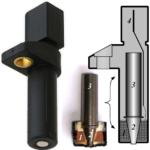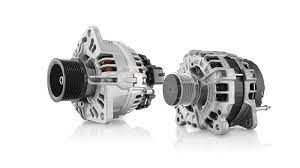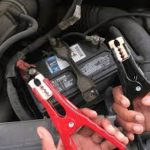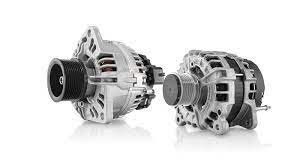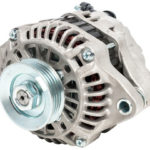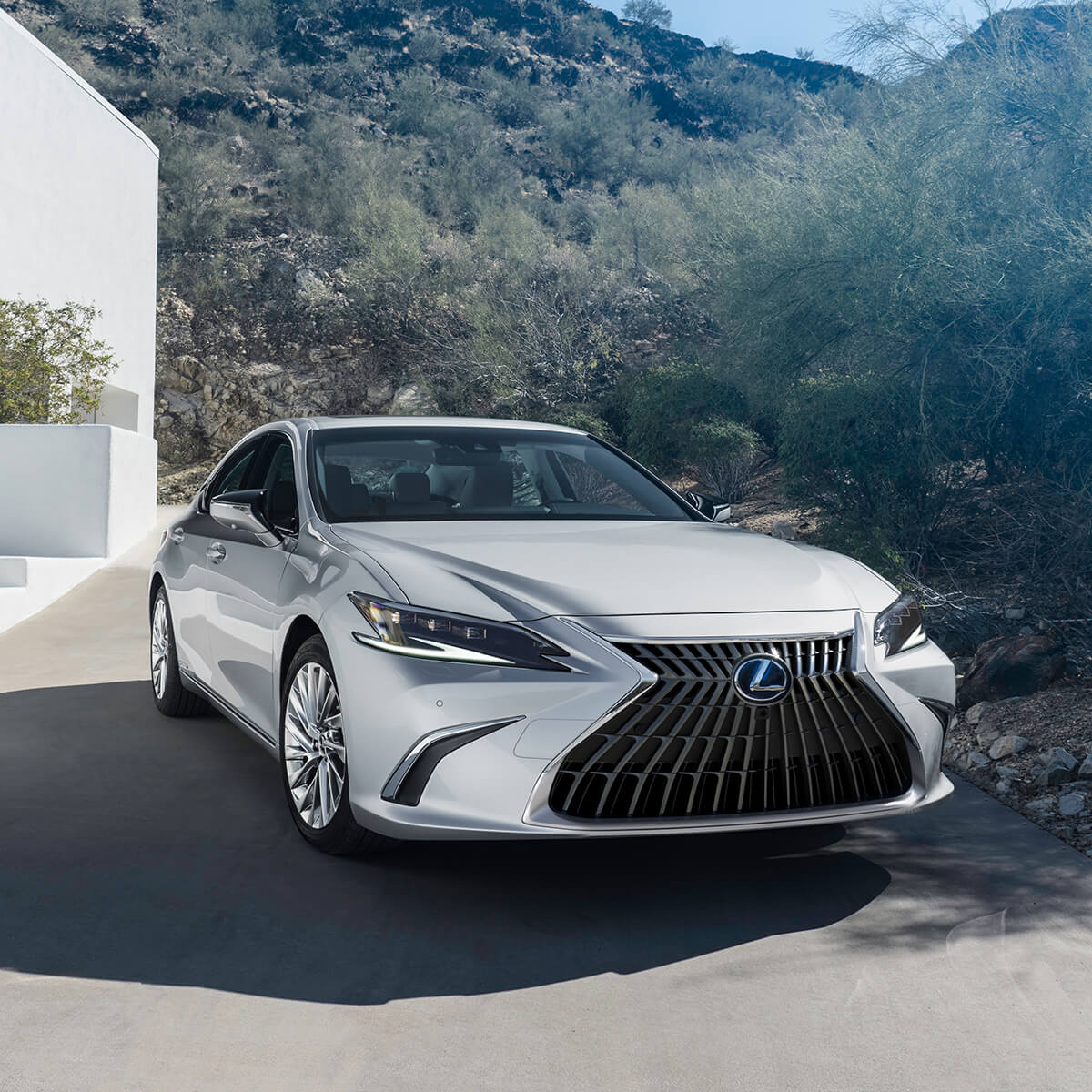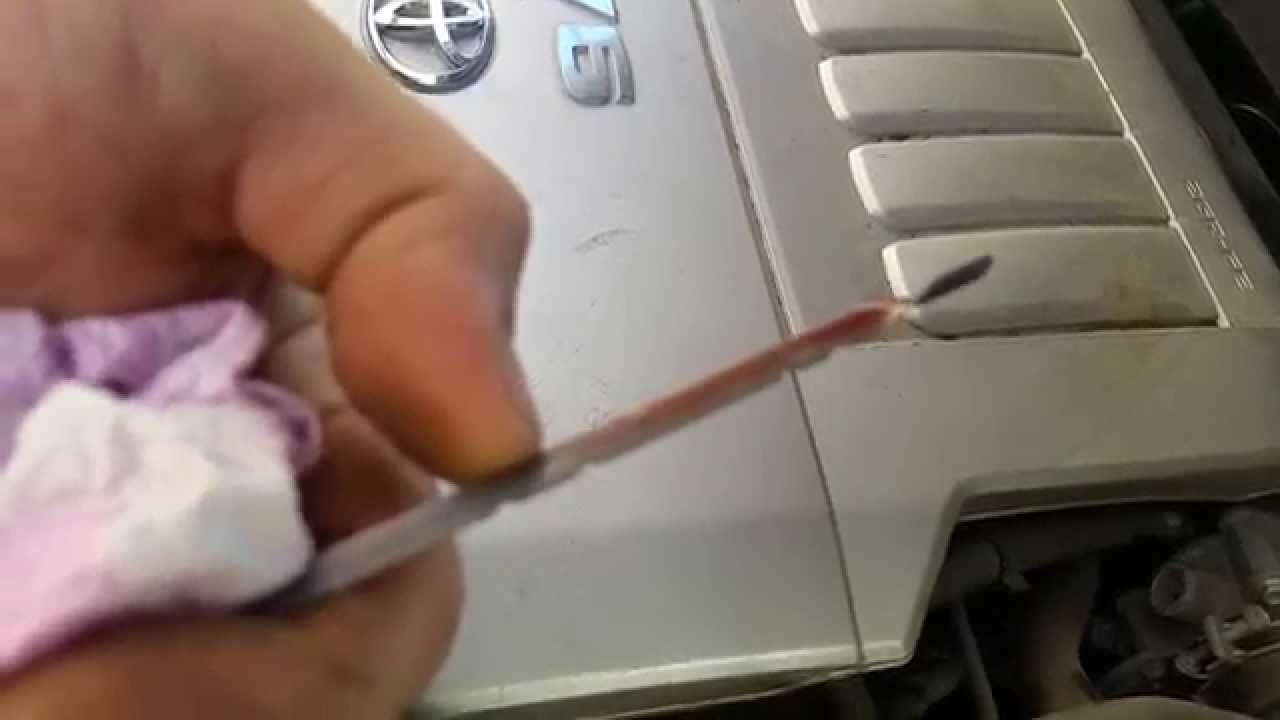Will a Car Start With a Bad Alternator? Yes, a car will usually still start with a bad alternator; however, the driving experience will not be pleasant.
Automobiles depend on a wide variety of different electrical components and systems to properly operate. That’s why it can be so difficult to pinpoint the exact problem when your car isn’t starting. Luckily, there are some telltale signs you can pay attention to that might give you an indication as to whether your alternator is bad.
One easy way to determine if your alternator is bad is by checking the voltage readings with a multimeter while the engine is running. Before we get into that, however, let’s look at what happens when an alternator is bad vs. when it’s good.
Read also:How Much Is a Car Alternator?
It is best to take your car to an auto mechanic who can test the charging system to diagnose and repair any issues.
It is best to take your car to an auto mechanic who can test the charging system to diagnose and repair any issues. A bad alternator may make the engine start, but it will not keep it running for long. The battery can supply power for a short period of time, but without the alternator, the battery will be drained in minutes or even seconds. Only an auto mechanic can see if there are other issues that need to be diagnosed and repaired that may contribute to a malfunctioning alternator.
A professional mechanic will perform tests on your car’s charging system to diagnose whether your alternator needs replacing or not. It is important that he or she performs these tests because other problems with your vehicle could cause similar symptoms as a bad alternator and will require different repairs than those required by a damaged alternator.
The auto technician can also perform any needed repairs after diagnosing the problem with your vehicle’s charging system If your car has a bad alternator, replacing it will be faster than you think (about 60-90 minutes). Replacing an alternator is not nearly as complex of a job as many people believe and actually has less steps than changing the oil in some cars! In total, including fixing any other issues with your vehicle’s charging system, taking your car into an auto shop should only take about two hours maximum.
The alternator supplies power to electrical components while the vehicle is operating.
The electrical system of your car relies on the alternator to provide power to recharge the battery. The alternator is belt-driven, and as such it functions as a generator. It gets its power from the rotation of the engine crankshaft through a belt connected to the alternator pulley. This generates enough electricity to keep all of your vehicle’s electrical systems operating properly, including your headlights and interior lights, audio system, and air conditioning unit. If you are having trouble starting your car or it stops running while you’re driving, there’s a chance that the alternator might be going bad.
If you drive a car with a bad alternator, it will slowly drain the battery and can even damage other electrical parts.
The alternator is a critical component of your vehicle’s charging system. It’s responsible for charging the battery and supplying electrical power to components while you drive. If you suspect a failed or failing alternator, it’s important that you have it diagnosed and replaced by a mechanic as soon as possible.
If you find yourself in a situation where your battery has died, and there are no other issues (jump-starting did not work, for example), then it is likely that your alternator has stopped working. In this case, we recommend having your car towed to a service center for diagnosis and repair.
A faulty alternator may cause your vehicle to run poorly or even stop working.
Because alternators are responsible for charging your car battery, they can impact the overall performance of your vehicle. If you notice that your alternator is faulty in any way, you should have it looked at by a mechanic right away.
There are several signs and symptoms that will alert you to the fact that your alternator may be going bad. These include:
- The vehicle may start running poorly or even stop working all together. This is because a faulty alternator can cause the battery to drain completely, which in turn affects other electrical components of the car such as dash lights, power seats and windows, radio and anything else run by electricity.
- Another indication that your alternator needs replacing is when it has started to overcharge the battery—which could lead to an explosion. This happens when there is too much electricity produced in your car’s electrical system due to voltage regulator failure or a worn out diode trio.
What Is Alternator Replacement Cost?
On average, replacing an alternator on a passenger vehicle will deliver a total cost that ranges between $400 and $560.
Because the alternator is hidden inside your engine bay, many people don’t realize it’s there until it starts to fail. Because of that, and because a lot of people don’t know what an alternator does anyway, you might be wondering: how much does an alternator cost?
On average, replacing an alternator on a passenger vehicle will deliver a total cost that ranges between $400 and $560. The parts alone will run you about $50 to $300 or so, while the labor costs involved in having an expert do the work will run between $150 and $260. However, exactly how much your particular car needs can vary widely based on factors like location (both where you live and where in your car the part is), make and model year of your vehicle, whether or not you do the work yourself or have someone else handle it for you.
If you do decide to do the work yourself, you’re looking at a combined cost of $110-$160 (this includes the tools as well as parts).
When you’re replacing the alternator, you need to have some special tools in order to get the job done. First things first, you’ll need a socket set and an impact driver. You can pick these up at your local auto parts store for about $90. You’ll also need a new alternator; this will cost anywhere from $20-$60 depending on where you go and what kind of quality you desire for your replacement part. Assuming that it takes two hours for labor, the total cost should be around $150-$200.
When you’re looking at costs for replacing your alternator, there are some things that can affect the overall price.
The average cost for replacing an alternator is about $500, which includes the cost of the parts and labor. It does not include tools needed to replace a front or rear wheel bearing since this is something that needs to be done by a professional mechanic, which can range anywhere from $300-$2,000+. If you’re looking at doing this yourself and do not have any experience in auto mechanics (or are always willing to pay someone else) then we recommend you don’t attempt it. As for the tools, you’ll need things like a metric socket set and ratchet wrench. These will run you between $100-$200. Then there’s the alternator itself, so that will run you another $100-$150.
Also, if your make and model has an alternator that is difficult to find or access, it could add more to the total cost for a replacement.
Also, if your make and model has an alternator that is difficult to find or access, it could add more to the total cost for a replacement. An example of a hard to reach alternator would be one on an older BMW 3 Series. The alternator is buried behind the engine and you need to remove other parts like the water pump, engine fan, and serpentine belt before you can get at it.
An example of a hard to find alternator would be one for new cars like the 2009 Toyota Camry. Most likely only the dealer will have this part in stock. If you go aftermarket, it may take some time before parts are available.
Another thing that can affect the cost you’re quoted when getting an alternator replaced is where you live.
Another thing that can affect the cost you’re quoted when getting an alternator replaced is where you live.
If you live in a rural area, it may be more expensive to replace your alternator because of the cost of labor. This is because there are fewer mechanics in rural areas than big cities, so mechanics have to charge more for their services to make up for the lack of customers compared with what they’d see in a city. Mechanics in cities can lower their prices because they have a bigger customer base, and they still make just as much money on each job. The opposite is true if you live in a city: You’ll likely pay less for labor because there’s so much competition between mechanics, but your part costs could go up. Auto parts stores have higher overheads and need to charge more for parts to keep afloat.
It’s also worth noting that not all vehicles use the same size alternator.
However, when you are comparing prices between alternator replacements, it is important to remember that not all vehicles use the same size alternator. Alternators are sized based on the amount of electrical output a vehicle’s electrical system requires. The larger the engine and resulting electrical outputs, the larger and more expensive the alternator will be.
The average alternator replacement cost can vary based on location, vehicle’s make and model, and whether the work is being performed at an auto shop or if it’s a DIY project.
It is important to note that the average alternator replacement cost can vary based on location, vehicle’s make and model, and whether the work is being performed at an auto shop or if it’s a DIY project.

